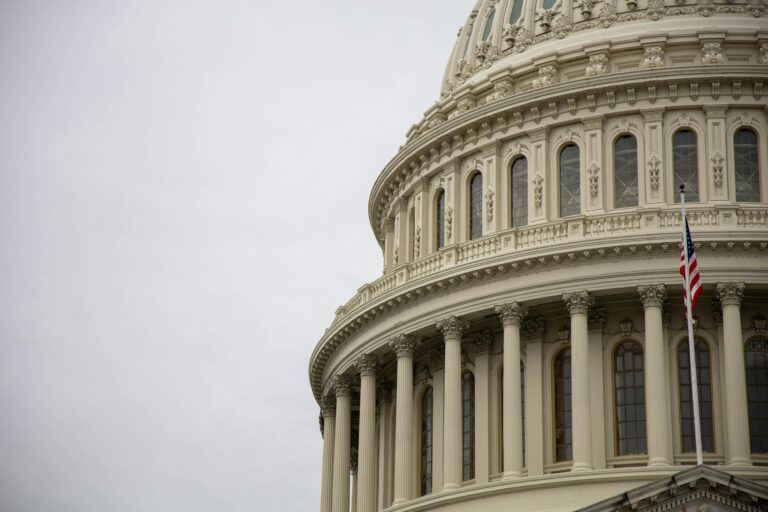
When it comes to legislation, the United States Congress has been known to produce some truly innovative and impactful laws. However, not all statutes stand the test of time or common sense. Over the years, various peculiar laws have been enacted, many of which are still technically in effect today. Whether they’re remnants of bygone eras or quirky attempts to address niche issues, these laws are a testament to the sometimes bizarre paths legislative bodies can take. Here are ten of the most bizarre laws still on the books in the USA that will make you question how they even passed.
1. Alabama: No Bear Wrestling
Law Overview: In Alabama, it’s illegal to engage in bear wrestling, a law that seems straight out of a circus rather than a state legislature.
Background: While it may sound like a joke, this law is real and has been on the books for decades. The primary reason behind this legislation is likely animal welfare. Bear wrestling involves forcing bears to fight or perform tricks, which is inherently cruel and dangerous for both the animals and the humans involved.
Why It’s Bizarre: Considering the evolution of animal rights and modern entertainment standards, the idea of bear wrestling is almost comical. Yet, the existence of such a law highlights how states once addressed issues that seem almost fantastical today.
2. Arizona: No Camels on the Highway
Law Overview: Arizona prohibits the transportation of camels on its highways, except in designated areas.
Background: This law dates back to the mid-19th century when camels were experimented with as potential pack animals in the desert regions of the American Southwest. The U.S. Camel Corps was an initiative to use camels for military and transportation purposes. While the program was short-lived, the law remains a quirky reminder of this unconventional experiment.
Why It’s Bizarre: Camels are not native to Arizona, and the idea of them being used for transport in the desert was always a bit out of the ordinary. Today, it’s hard to imagine camels roaming the highways of the Grand Canyon State, making this law an amusing relic of past attempts at innovation.
3. California: No Faking a Missile Launch
Law Overview: In California, it’s illegal to fake a missile launch, a law that sounds more like something out of a sci-fi thriller than everyday life.
Background: This law is part of broader regulations aimed at preventing panic and ensuring public safety during times of national security concerns. While the idea of someone pretending to launch a missile seems far-fetched, the legislation underscores the seriousness with which states approach potential threats.
Why It’s Bizarre: The specificity of the law is what makes it stand out. While preventing real missile threats is crucial, legislating against the mere act of faking one is an unusual approach to addressing public safety.
4. Florida: No Selling “Dead” Fish
Law Overview: In Florida, it’s illegal to sell fish that are no longer alive, a law that takes “fresh catch” very literally.
Background: This law aims to ensure that consumers receive fresh seafood, thereby protecting public health and maintaining industry standards. Selling dead fish could pose significant health risks, including foodborne illnesses.
Why It’s Bizarre: While the intention behind the law is sensible, the phrasing can be misleading and amusing. The idea that someone might intentionally sell dead fish, and thus require legislation to prevent it, adds a layer of absurdity to the regulation.
5. Kentucky: No Carrying Ice Cream in Your Back Pocket
Law Overview: Kentucky prohibits individuals from carrying ice cream in their back pockets, a law that sounds more like a quirky local rule than a state statute.
Background: This unusual law is believed to have originated as a means to prevent horse theft. Farmers would use ice cream as a distraction, slipping it into their back pockets to lure horses away. By banning the practice, the law aimed to reduce theft and ensure the safety of livestock.
Why It’s Bizarre: The specific nature of the law makes it particularly strange. The image of someone trying to sneak ice cream into their back pocket to steal a horse is almost comical, yet it highlights the creative (albeit odd) methods used in the past to address crime.
6. Minnesota: No Putting a Moose in a Barrel
Law Overview: In Minnesota, it’s illegal to put a moose inside a barrel, a law that conjures images of peculiar wildlife handling practices.
Background: This law likely stems from efforts to protect wildlife and prevent inhumane treatment of animals. Moose are large, wild animals, and such an act would be both cruel and dangerous. The law serves as a deterrent against such mistreatment.
Why It’s Bizarre: The specificity of the prohibition makes it stand out. While protecting moose is important, the idea that someone might attempt to confine such a massive animal in a barrel is both bizarre and unlikely, making the law seem almost humorous in its narrow focus.
7. Ohio: No Playing Pinball in the State Capitol
Law Overview: Ohio prohibits the playing of pinball machines within the State Capitol building.
Background: This law dates back to the mid-20th century when pinball was considered a distraction and even a source of moral decay by some lawmakers. The state legislature decided that pinball machines were not appropriate for the solemn environment of the capitol.
Why It’s Bizarre: In today’s digital age, the idea that pinball was once seen as a significant enough issue to warrant a ban in the state capitol is amusing. It reflects the changing perceptions of entertainment and technology over time.
8. Texas: No Shooting a Buffalo from a Second-Story Hotel Window
Law Overview: In Texas, it’s illegal to shoot a buffalo from a second-story hotel window.
Background: This law is likely a holdover from a time when buffalo were more common in the United States, and such an act would have been both dangerous and wasteful. The specificity of the law serves to prevent reckless and impractical hunting practices.
Why It’s Bizarre: The imagery of someone attempting to shoot a buffalo from a hotel window is absurd, highlighting how some laws are tailored to prevent highly unlikely scenarios. It also underscores the state’s historical connection to buffalo hunting and conservation.
9. Alaska: No Rattling in a Quiet Car on Public Transportation
Law Overview: Alaska prohibits rattling on a quiet car within its public transportation systems.
Background: Quiet cars are designated areas in public transit where noise is kept to a minimum to ensure a peaceful environment for passengers. Rattling, whether from luggage or personal items, can disrupt this tranquility. The law enforces respectful behavior in shared spaces.
Why It’s Bizarre: While maintaining quiet in public transportation is sensible, the act of legislating against rattling is unusually specific. It brings to mind a world where micromanaging passenger behavior requires detailed legal measures.
10. Nebraska: No Honking After Midnight
Law Overview: Nebraska makes it illegal to honk your car horn after midnight, except in cases of emergency.
Background: This law aims to reduce noise pollution and ensure that residents can enjoy peaceful nights without unnecessary disturbances. Excessive honking can be a nuisance, especially in residential areas, and this regulation seeks to address that issue.
Why It’s Bizarre: While the intent is understandable, the enforcement of such a law is challenging. The fine line between a legitimate emergency and casual honking makes the law’s application both tricky and somewhat absurd.
Conclusion
The United States boasts a rich tapestry of laws, reflecting the diverse needs and peculiarities of its states. While many statutes serve clear and necessary purposes, others stand out for their sheer oddity. These bizarre laws, whether remnants of historical practices or unique attempts to address specific issues, offer a fascinating glimpse into the legislative process and the ever-evolving societal norms. While most of these laws are unlikely to be enforced today, their existence serves as a humorous reminder of how our legal landscape can sometimes take unexpected and amusing turns. So, the next time you find yourself in a particular state, it might be worth checking if there’s a bizarre law waiting to surprise you!
Additional Insights
Legislative bodies often grapple with balancing comprehensive governance with practical, enforceable laws. The existence of these bizarre laws highlights the challenges lawmakers face in addressing both common and highly specific issues. It also underscores the importance of regular legal reviews to ensure that statutes remain relevant and sensible.
Moreover, these peculiar laws can serve as a source of amusement and curiosity, encouraging citizens to engage more deeply with their state’s legislative processes. By understanding the origins and intents behind these statutes, we gain a greater appreciation for the complexities of lawmaking and the cultural contexts that shape our legal systems.
Ultimately, while these bizarre laws may seem laughable, they are part of the intricate fabric of American jurisprudence. They remind us that law is not just a set of rules, but a reflection of the society that creates and upholds them.
About the Author
[Your Name] is the creator of the “Stupid Congress” blog, dedicated to educating readers about politics, political systems, and history with a mix of serious analysis and engaging, fun content. By blending insightful commentary with lighter articles, [Your Name] aims to make the complexities of politics accessible and entertaining for all.
Engage with Us!
Have you come across any bizarre laws in your state? Share them in the comments below or reach out to us on social media! Let’s keep the conversation going and uncover more of the quirky side of American legislation together.
Stay Updated
Don’t miss out on our daily news summaries and fun political listicles. Subscribe to our newsletter and follow us on [Social Media Links] to stay informed and entertained!
Disclaimer
This article is intended for informational and entertainment purposes only. Laws are subject to change, and it’s always best to consult official legal sources or legal counsel for current legislation.
References
- Alabama Code Title 13A. Criminal Code
Retrieved from Alabama State Legislature Website. - Arizona Revised Statutes
Retrieved from Arizona State Legislature Website. - California Penal Code
Retrieved from California Legislative Information. - Florida Statutes Title XLIII. Crimes and Offenses
Retrieved from Online Sunshine. - Kentucky Revised Statutes
Retrieved from Kentucky Legislature. - Minnesota Statutes
Retrieved from Minnesota Legislature. - Ohio Revised Code
Retrieved from Ohio Legislature. - Texas Statutes
Retrieved from Texas Legislature Online. - Alaska Statutes
Retrieved from Alaska State Legislature. - Nebraska Revised Statutes
Retrieved from Nebraska Legislature.
Tags
BizarreLaws #USALegislation #QuirkyRules #PoliticalHumor #StupidCongress #FunPolitics #LegislativeOddities #WeirdLawsUSA #PoliticalHistory #Entertainment
Image Suggestions
- Collage of State Capitols: A colorful image showing various state capitol buildings to represent the diverse origins of these laws.
- Illustrations of Bizarre Scenarios: Cartoon-style drawings depicting some of the laws in action, like a camel on a highway or someone trying to carry ice cream in their back pocket.
- Old Legislative Documents: A vintage look at old laws or statutes to emphasize the historical aspect of these bizarre laws.
- Humorous Political Cartoons: Light-hearted cartoons that poke fun at the absurdity of certain laws.
- Map of the USA Highlighting Specific States: A map showing the states mentioned in the article with icons representing each bizarre law.
SEO Optimization Tips
- Keywords: Use keywords such as “bizarre laws USA,” “weird state laws,” “strange US legislation,” “funny political laws,” and “quirky American laws” throughout the article to improve search engine visibility.
- Meta Description: Craft a compelling meta description like: “Discover the top 10 most bizarre laws still on the books in the USA. From ice cream back pockets to camel bans, explore the quirkiest state regulations today!”
- Internal Links: Link to other relevant articles on your blog, such as “Top 10 Political Gaffes” or “Unusual Historical Laws in America.”
- External Links: Reference official state legislature websites for credibility and SEO benefits.
- Alt Text for Images: Use descriptive alt text for all images, such as “Illustration of a camel on a highway in Arizona” or “Cartoon of someone hiding ice cream in their back pocket in Kentucky.”
- Headings and Subheadings: Utilize H2 and H3 tags for each law and sections like Introduction and Conclusion to enhance readability and SEO.
- Mobile Optimization: Ensure the article is mobile-friendly, as many readers access content via smartphones and tablets.
- Engagement: Encourage comments and social sharing by asking readers to share their own experiences with strange laws or by suggesting other bizarre statutes they’ve encountered.
By following these SEO tips, your article on “10 Bizarre Laws Still on the Books in the USA” will not only entertain your readers but also reach a wider audience searching for quirky and interesting political content.
Final Thoughts
Legislation is a reflection of society’s evolving values, concerns, and sometimes, its quirks. While these bizarre laws might seem amusing or perplexing today, they offer valuable insights into the historical and cultural contexts from which they emerged. As we move forward, it’s essential to continually evaluate and update our legal frameworks to ensure they serve the public effectively and sensibly. Until then, these odd statutes will remain fascinating footnotes in the annals of American law, reminding us that sometimes, truth is indeed stranger than fiction.
Share Your Thoughts!
What’s the weirdest law you’ve heard of? Do you think any of these should be updated or repealed? Let us know in the comments below!
Subscribe for More
Stay informed and entertained with our latest posts by subscribing to the “Stupid Congress” newsletter. Get daily summaries, fun listicles, and in-depth political analyses delivered straight to your inbox.
By embracing both the serious and the silly aspects of politics, “Stupid Congress” aims to educate and entertain, proving that learning about the legislative process doesn’t have to be all work and no play. Whether you’re a political enthusiast or just looking for a good laugh, there’s something here for everyone.





